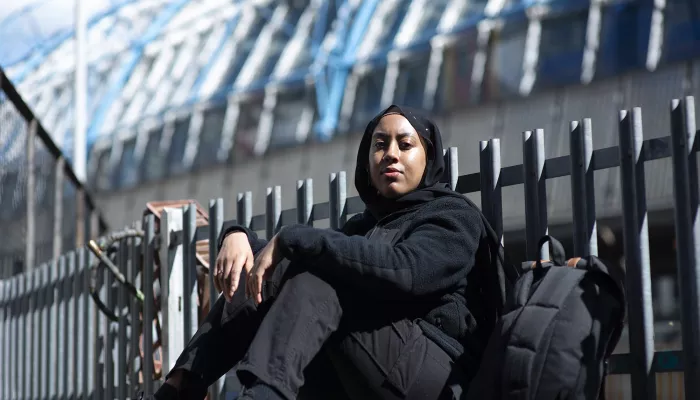New plans from the government could criminalise people forced to sleep rough.
Ministers say the plans, currently racing through parliament as part of the Criminal Justice Bill, will give police and local authorities the ‘tools’ they need ‘in situations where those sleeping rough are causing damage, disruption and distress’. Centrepoint is worried this open-ended nature of ‘disruption and distress’ could leave the new laws open to abuse.
What was the Vagrancy Act?
The Vagrancy Act was created back in 1824, as a way to punish people for begging and sleeping rough - it essentially criminalised some forms of homelessness. But being homeless is out of someone’s control, and it was shown in a 2017 study by Crisis that the majority of people moved on by the Act were never offered any support.
Back in 2019, the government repealed the 200-year-old Vagrancy Act and opened a consultation with charities, police forces, councils and other stakeholders to establish a more modern and appropriate replacement.
Here at Centrepoint, we believe the Vagrancy Act does not need replacing, and we led the campaign to abolish the Act – permanently.
The response to the consultation showed that overall, there was little support for new powers against rough sleeping.
Despite this, ministers in government are pushing on to replace the Act with new legislation as part of the Criminal Justice Bill.
What does the Criminal Justice Bill legislation mean?
Specifically, the new legislation will ‘Create a move on power for rough sleeping where it causes damage, disruption, distress or harassment as well as health and safety or security risks.’
But there are already ways for councils and police forces to address anti-social behaviour. The Anti-Social Behaviour, Crime and Policing Act 2014 allows public bodies to enforce:
- Criminal Behaviour Orders
- Community Protection Notices
- Public Spaces Protection Orders
We’re worried that 'disruption to the public’ is not well-defined enough to be used appropriately. Instead, vulnerable people could be criminalised instead of supported, pushing them further away from routes off the streets and out of homelessness.
Simply signposting is ‘unworkable’
The government has indicated that police intervention will include signposting to support for those who are ‘genuinely homeless’. This would be essential to any effective intervention – but it is unworkable in reality. We know that many homelessness services are already at breaking point and local authorities can’t keep up with demand.
Out of the 119,300 young people in England who approached their council for help with homelessness last year, only 65% were assessed. 40,000 of them didn’t even get a chance to see if they were eligible for support.
And it’s not just local authorities who can’t provide enough support to those already in dire need. Of the 38 homelessness charities we surveyed, 87% said that demand for their services had increased since last year – leading to just over a quarter having to turn people away when approached for support.
Alicia Walker, our Head of Policy, Research and Campaigns explains it well: “It is hard to see the purpose of this. By the time the Bill becomes law, hundreds if not thousands more people will have been forced to sleep rough – what positive difference to them and their situation will having the police intervene make?
A police intervention leading to support will be unworkable when the support isn’t in place – many councils and charities are already overwhelmed by the scale of demand they’re facing.“
Being homeless should not be a crime
We believe that criminalising rough sleeping makes no sense. In fact, many young people we support became homeless because they were victims of crime themselves.
Homelessness is not a ‘lifestyle choice’ or a decision, and rough sleeping isn’t a ‘nuisance’ to others – young people find themselves desperately looking for a safe space to stay after family breakdowns, leaving care or escaping violence. In our recent podcast episode, ‘Rough sleeping is not a lifestyle choice’, young people with experience of street homelessness shared what it’s really like to sleep rough, and what kind of support or government policies would genuinely make a difference.
Alicia says, “Criminal law cannot prevent rough sleeping because the causes of rough sleeping are generally not criminal in nature. There’s unanimous agreement with this basic premise, so it defies logic that ministers plan to press ahead with a Bill that criminalises rough sleepers in such a dangerously open-ended way.
“Recent government investment is battling against the wider system failure of the housing crisis which criminalisation only risks compounding. The only way to prevent that failure is a serious, cross-government plan to end homelessness defined by supporting people, not punishing them.”

Campaign with us
We could change the story for many homeless young people, but that can only happen if the Government commit to a proper strategy to tackle youth homelessness. Become a campaigner with us and help end youth homelessness by 2037.

